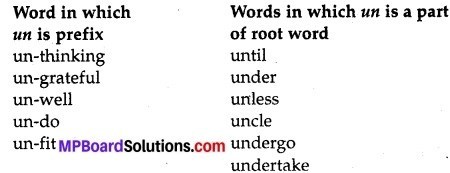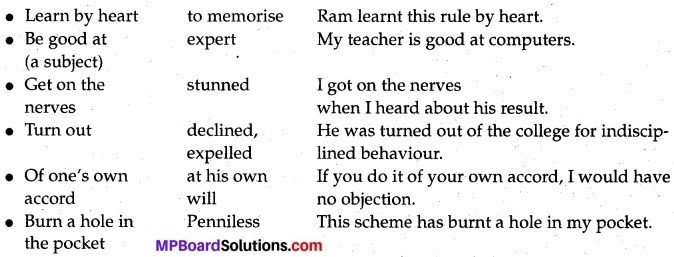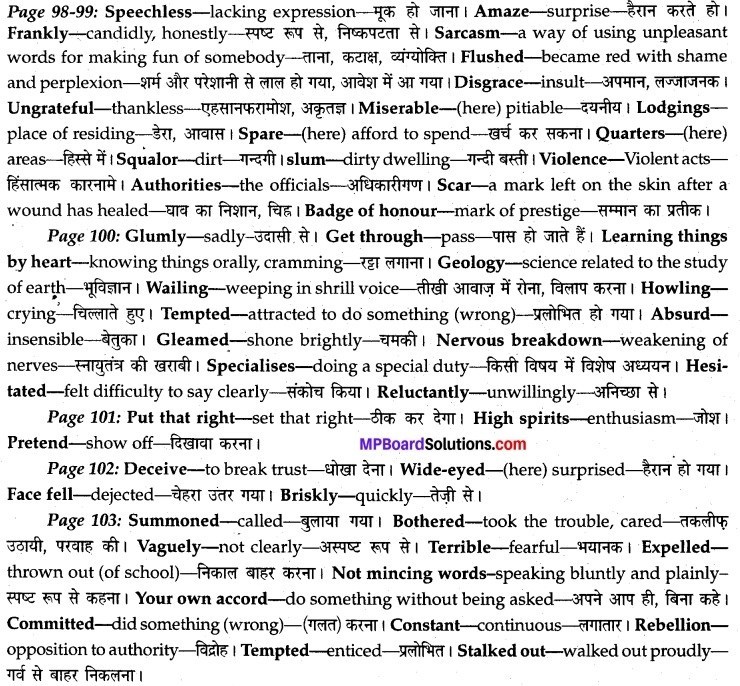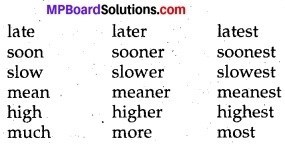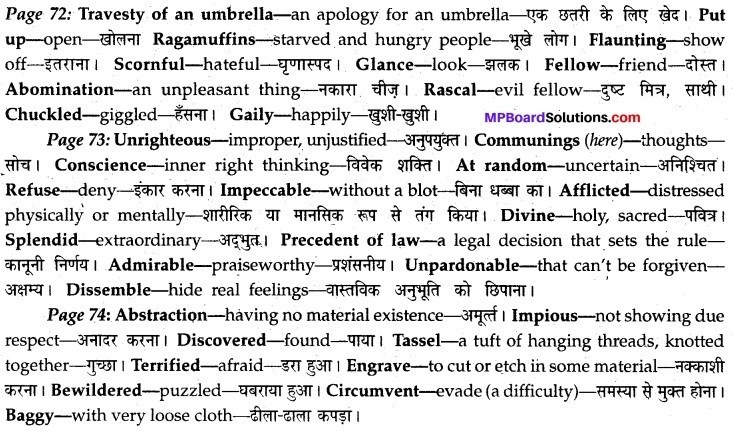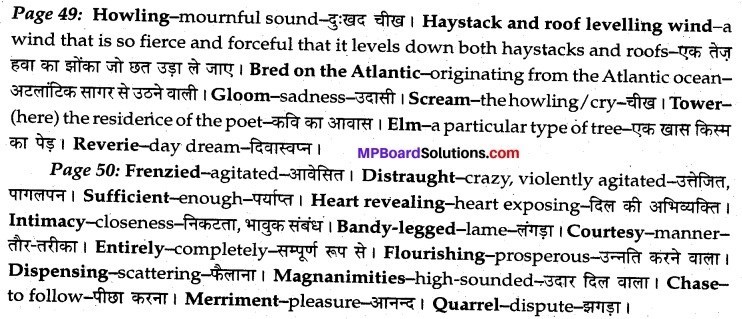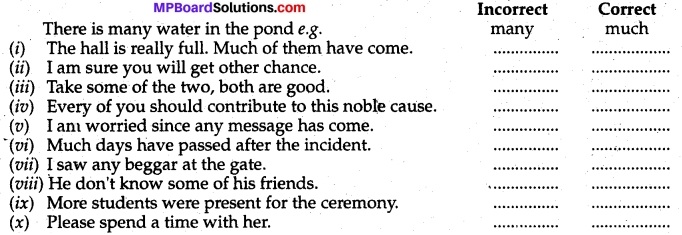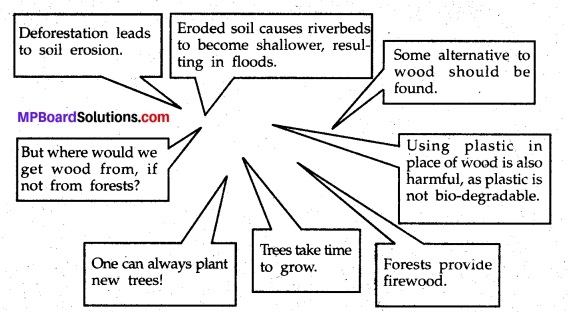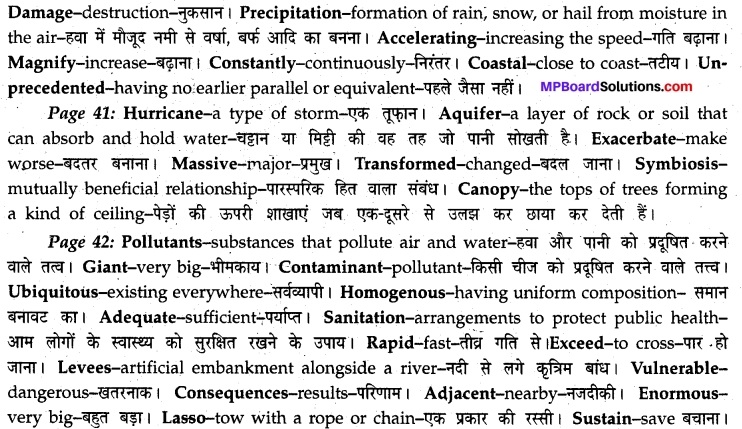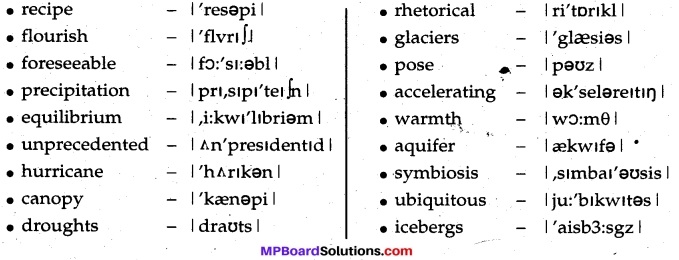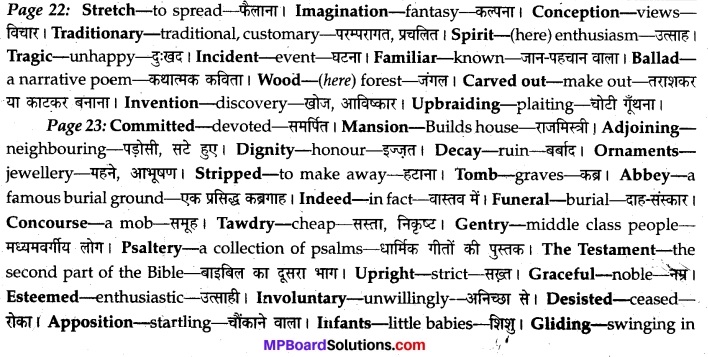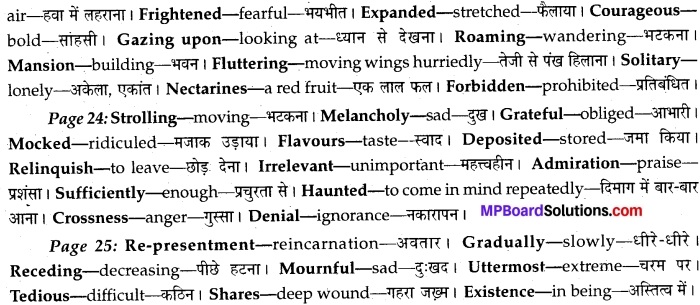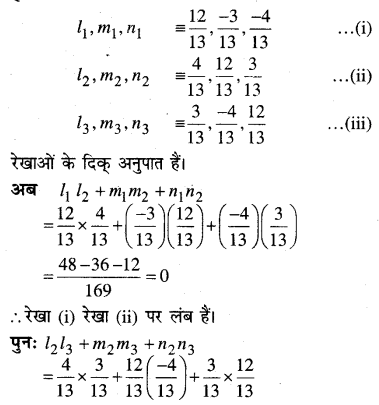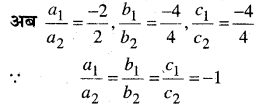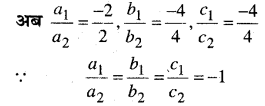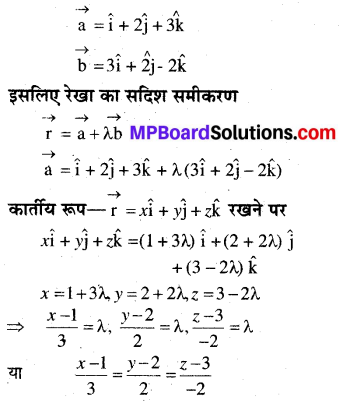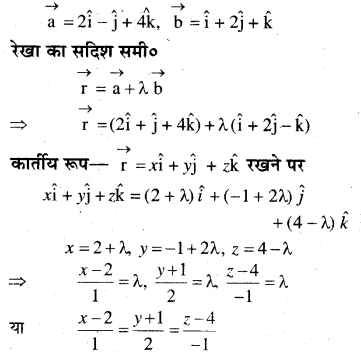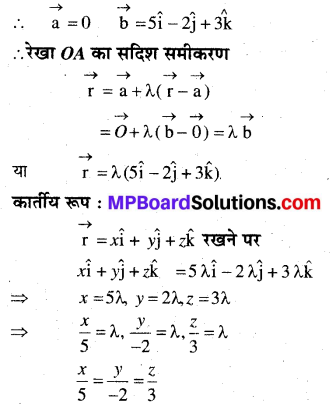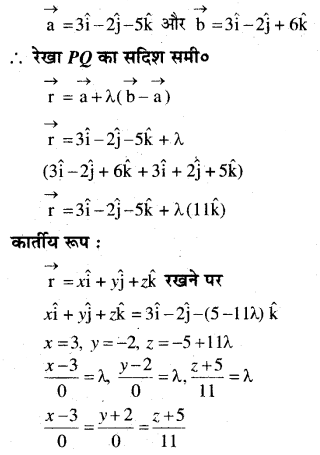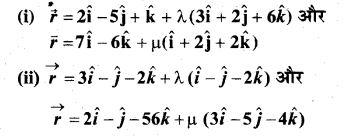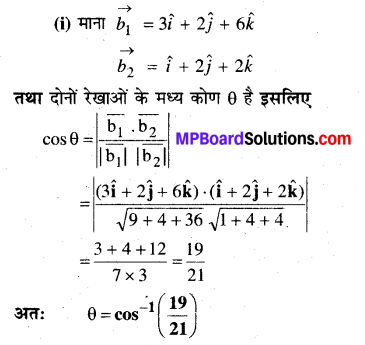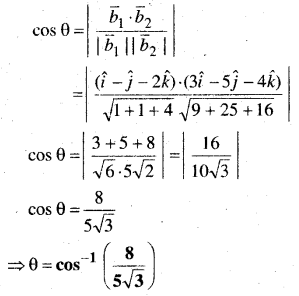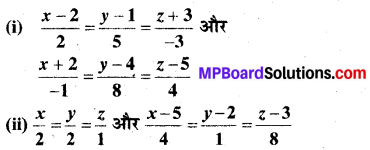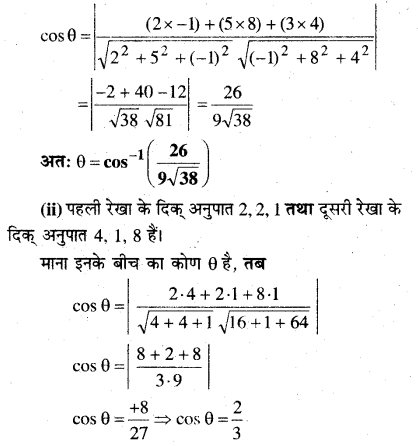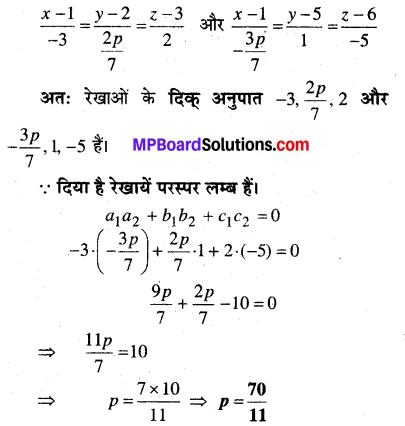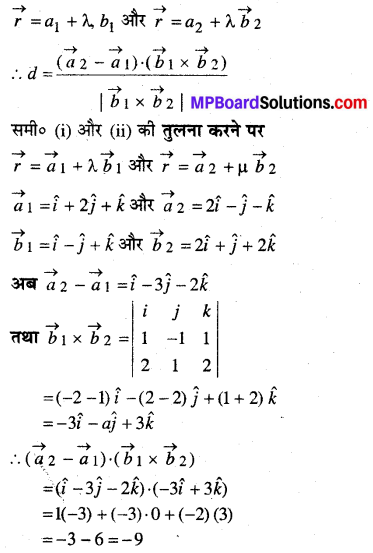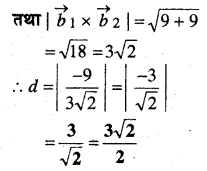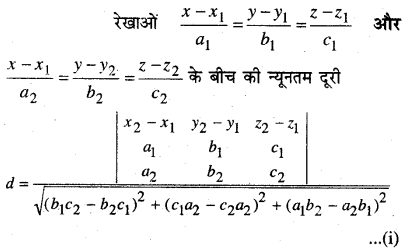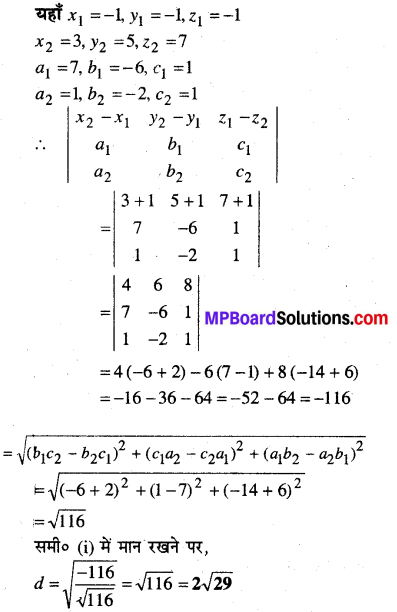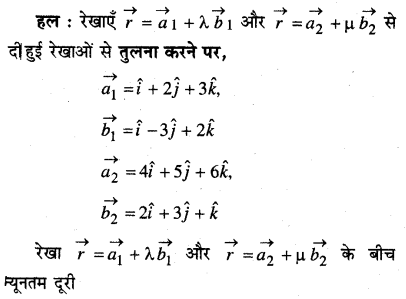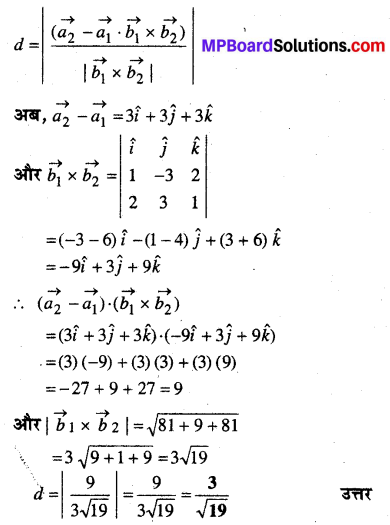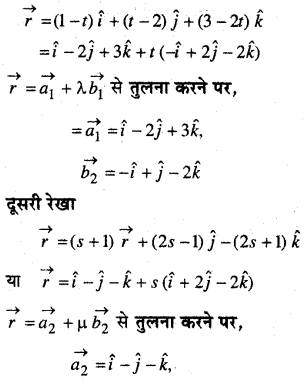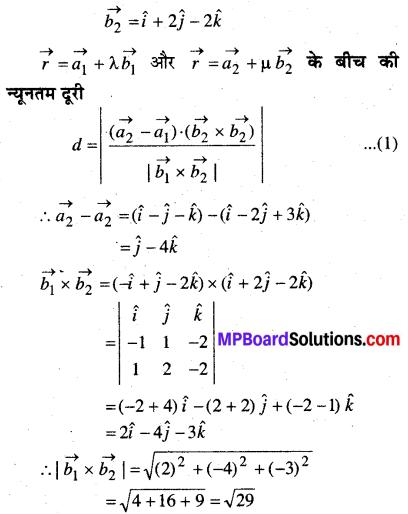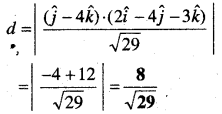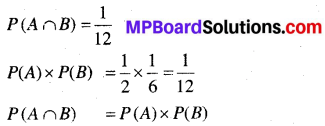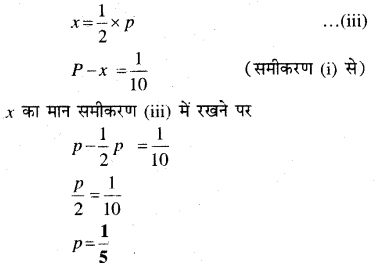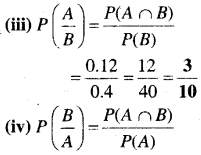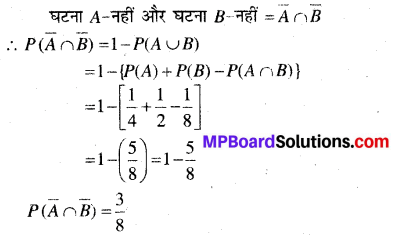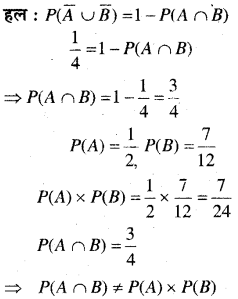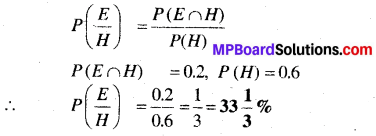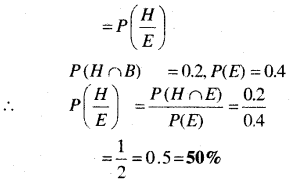MP Board Solutions for 12th English Chapter 15 To Autumn Questions and Answers aids you to prepare all the topics in it effectively. You need not worry about the accuracy of the Madhya Pradesh Board Solutions for 12th English as they are given adhering to the latest exam pattern and syllabus guidelines.
You Can Download MP Board Class 12th English Solutions Questions and Answers Notes, Summary, Lessons: Pronunciation, Translation, Word Meanings, Textual Exercises. Enhance your subject knowledge by preparing from the Chapterwise MP Board Solutions for 12th English and clarify your doubts on the corresponding topics.
MP Board Class 12th English A Voyage Solutions Chapter 15 To Autumn (John Keats)
Kick start your preparation by using our online resource MP Board Solutions for 12th English Chapter 15 To Autumn Questions and Answers. You can even download the Madhya Pradesh Board Class 12th English Solutions Questions and Answers for free of cost through the direct links available on our page. Clear your queries and understand the concept behind them in a simple manner. Simply tap on the concept you wish to prepare in the chapter and go through it.
To Autumn Textbook Exercises
Word Power
A. Distinguish between the following pairs of words by using them in meaningful sentences. The first word in each pair is from the text:
bless-bliss; vine-wine; shell-cell; sweet-sweat; later-latter; warm-worm; cease-seize; abroad-aboard; granary-greenery; floor-flour; hair-heir; patient-patent; plain-plane;
Answer:
- Bless-The hermit blessed him with a long life.
Bliss-Sound sleep is a great bliss to me. - Vine-The grapevine scattered all over the roof.
Wine-Wine is injurious to health. - Shell-The shell of the tortoise is very hard.
Cell-The cell of this calculator is damaged. - Sweet-The mango tastes sweet.
Sweat-Too much sweat is not good. . - Later-Later, I thought to shift my plan.
Latter-Two visitors came this morning, the latter one was a policeman. - Warm-Take this pill with warm water.
Worm-The doctor found a dangerous worm in his body. - Cease-The engine of this car suddenly ceased.
Seize-The police seized all the property of my neighbour. - Abroad-I sent my son abroad for higher studies.
Aboard-I was aboard when you called me. - Floor-My friend’s house is on the third floor.
Flour—I don’t like packed flour. - Hair—His hair turned grey prematurely.
Heir—The heir of the king proved to be unworthy. - Patient—This patient suffers from a chronic asthma.
Patent—Use only patent drug. - Plain—I want a plain sheet of paper.
Plane—The plane crashed this morning due to technical failure.
B. The following words have sensuous connotations. Fill them in the appropriate columns according to their appeal to the senses:
mist, mellow, ripeness, swell, plump, kernel, flower, clammy, wind, perfume, cider, oozings, songs, music, soft, bloom, stubble-plains, rosy hue, wailful, chou, bleat, whistles, twitter.
Answer:
| appeal to the sense of perception | appeal to the eye | appeal to the ear | appeal to the nose | appeal to the tongue |
| soft stubble-plains wind clammy swell | flower bloom mist swell rosy hue oozings plump | songs music wailful bleat whistles choir | perfume | ripeness kernel , cider |
Comprehension
A. Answer the following questions in about 60 words each:
Question 1.
What does the autumn plan to do with the cottage trees?
Answer:
The autumn plans to bend the cottage trees with apples and fill all the fruits with ripeness to the core. It wants to swell the ground and plump the hazel shells with a sweet kernel. Here, the poet presents a lively and sensuous picture of the season. The Autumn’and the sun work together for the ripening of all kinds of fruits.
Question 2.
Why does autumn intend to ‘set budding’ the late summer flowers?
Answer:
The autumn is described as a season of fruitfulness. There is mist and mellow fruitfulness all around. Fruits come to their maturity. The season intends to ‘set budding’ the late summer flowers, so that the bees can suck the perfect sweetness. They store fresh honey.
Question 3.
How are the honey-combs after the summer and how do the bees feel?
Answer:
The bees here represent a continuation of summer. For the bees, therefore, the warm days of summer have not ended. The sticky cells of the honey-combs are filled to overflowing with honey and yet autumn provides more flowers in case the bees may like to draw more sweetness from them.
Question 4.
How can Autumn be seen as a harvester?
Answer:
The poet has personified Autumn in various forms. All the forms are perfect and realistic. Autumn is seen as a harvester. He is sitting carelessly in the field during the winnowing operation. Here the poet uses all the images to make the picture clearer. The Autumn is shown sitting carelessly on a granary floor. His hair is soft lifted by the winnowing wind. He is sometimes in sound sleep on a half reaped furrow. He is drowsed with the fume of poppies while his look spares the next swath and all its twined flowers.
Question 5.
How does the poet describe the crop cutter?
Answer:
While presenting the various occupations of Autumn, the poet depicts him as a reaper. He has fallen asleep in the midst of reaping. He is very tired. Through this the poet makes the poem human and universal because the eternal labour of man is brought before the eyes of the reader.
Question 6.
What is the cider-maker doing?
Answer:
The poet presents the Autumn in a role of a cider-maker who is watching intently the apple juice oozings hours by hours till its end. There is a patient look in his eye. The poet is very realistic in the description of the Autumn.
Question 7.
Describe the scene of the earth at sunset. (M.P. Board 2011)
Answer:
Keats has presented his keen observation with all minute details. The whole poem demonstrates his interest in nature. While describing the scene at sun-set, he says that in the evening when the crimson light of the setting sun falls upon the stable fields, a chorus of natural sound is heard. This picture is very appealing.
Question 8.
Where do the small gnats sing from and how does their music reach the poet?
Answer:
The poet has created a very intense and varied sound effect in the poem. Autumn has its own sounds and songs. In the evening in a wailful choir the small gnats mourn among the river shallow. The sound appears to be born aloft or sinking, as the light winds lift or die. It symbolizes the close of the year.
Question 9.
Do you find remember of sadness at some points in the poem? How does the poet overcome the sad moment and become happy?
Answer:
Keats presents a vivid picture in this poem. Beginning with a very sensuous picture of the season, the poet shows the Autumn as an active agent. However, towards the end of the poem, he becomes sad. The Autumn is shown at its fag end. There are images of death or withdrawal and of song and the songs are funeral dirge for the dying year.
Question 10.
How does the poet address Autumn? (M.P. Board 2015)
Answer:
The poet has presented a lively picture of the autumn. He addresses the autumn as ‘season of mists and mellow fruitfulness’. The autumn is seen as a person in various roles as a reaper, a winnower, a gleaner and a cider-maker.
B. Answer the following questions in 75-100 words each:
Question 1.
Prove that To Autumn’ is a song of ripeness and abundance.
Answer:
‘Ode to Autumn’ is a typical poem of John Keats. This poem describes the autumn season. The poet personifies the season and presents it with all its sensuousness. Autumn is described as a season of ‘mellow-fruitfulness’. The sun is ripening or ‘maturing’ the earth. It conspires to load the vines and blend the apple trees and ‘to swell the ground and plump the hazel shells’.
The season fills ‘all fruits with ripeness to the core’. These images of full, inward ripeness, and strain suggest that the maturing and the fulfillment has reached its climax. Even the combs of the bees are over brimmed but still the ripening continues as. ‘Budding more and still more later flowers.’ Therefore, this poem can be said a song of ripeness and abundance.
Question 2.
What are the two friends-Autumn and warm sun planning to do with fruits and flowers?
Answer:
‘Ode to Autumn’ presents a sensuous picture of the autumn. Autumn is a season of ripe fruitfulness. It is the time of the ripening of grapes, apples, gourds, hazel nuts etc. It is also the time when the bees suck the sweetness from the later flowers and make honey. The sun plays a major role in maturing or ripening these fruits. It is the main conspirator of the ripening and maturing of the fruits. There are indirect images of ageing. Autumn and the sun are shown as close bosom friends, together conspiring to riper the fruits.
Question 3.
What are the four images of personication through which autumn has been picturized?
Answer:
The poem, ‘Ode to Autumn’ presents autumn’s vivid images. The poet personifies it in fair images of a winnower, a reaper, a gleaner and a cider-presser. Autumn is seen as a woman who performs the task of winnowing, reaping, gleaning, and cider-pressing. One can see the Avoman, i.e., autumn into the fields engaged in the winnowing operations while breeze ruffles her locks of hair.
This is the first image of autumn. Second, one may see autumn in the form of a reaper, who has been engaged in reaping corn but is so overcome by the sleep-inducing smell of poppies, which hampers the next row of corn that remains unreaped. Third, autumn may be seen in the image of a gleaner who is walking along steadily with the weight also of grains upon her head, crossing a stream. Finally, autumn may also be seen in the image of one who is crushing the ripe apples in the warden press to obtain their juice from which cider is to be made. This woman sits by the cider-press and watches patiently the apple juice flowing out of the press drop-by drop.
Question 4.
In the third stanza, the poet says “thou hast thy music too”. What objects does the poet find Autumn’s music in?
Answer:
In the third stanza of the poem, Keats describes the sound of Autumn. It has its own pattern and music or quality that enhances its charm. The sounds of Autumn are heard in the evenings. When the sun is setting, soft glow irradiates the fields from which the crop has been reaped, leaving the stumps behind. The long-drawn out clouds in the sky look like the bars of a grate. At this time, the melancholy buzzing of the gnats is heard. The gnats fly about among the shrubs growing on the riverside. The gnats are carried upwards when the wind is strong and they come downwards when the wind is feeble.
In addition to the gnats singing in a melancholy chorus, the bleating of full-grown lambs is heard from the hills which bound the landscape. Then there is the chirping of the grasshoppers. Next comes the high, bold and delicate singing of the red-breast which sings from an orchard. Finally there is the twittering of the swallows which are gathering in large numbers to get ready for their winter migration. Through these images, Keats heightens the effect of autumn. The sound generated becomes the music of autumn.
Question 5.
Keats is a master of word-pictures. Explain some of the word-pictures from the poem.
Answer:
Keats’s Ode to Autumn is said to be a fine specimen revealing the qualities of the poet.
Keats was one of the greatest word painters in English poetry. In his poems, picture follows picture in quite succession and each picture is remarkable for its vividness and minuteness of detail. His images are concrete. In Ode to Autumn, Autumn has been represented in the concrete form of a reaper, winnower, gleaner, etc.
In the first stanza, we have a complete and concrete picture of Autumn’the season of mists and mellow fruitfulness.’ In the second stanza, Autumn is a winnower’on a half reaped furrow sound asleep,’ a gleaner, keeping ‘steady they laden head across a brook’ and a spectator, watching ‘the last oozings hour by hour.’ All these pictures of Autumn make the poem human and universal for its use of concrete imagery.
Question 6.
What is an ode? Compare ‘To Autumn’ with Toru Dutt’s ‘Our Casuarina Tree’ in respect to form, address and glorification of the subject of treatment.
Answer:
An Ode is always an address to some noble thought, idea or deity. It is a serious, noble and dignified form of lyrical composition in a regular stanza form. It is exalted in theme, elated in tone and is always refined in language and style.
Ode to Autumn is a typical example of a highly structured ode. It is in the form of an
address in a purely objective manner. The Autumn has been personified with vivid images which seem to be very realistic. On the other Hand, Toru Dutta’s ‘Our Casuarina Tree’ is in lyrical tone with a touch of elegy.
Toru Dutt’s,’Our Casuarina Tree’ is a more personal poem where she glorifies the tree as it reminds her of her beautiful past. Her poem is an effort to make the tree immortal while Keat’s ‘To Autumn’ personifies the different aspect of Autumn in lyrical form.
Question 7.
Give a critical appreciation of the poem, dealing with Keats’ attitude to the season, and the pictorial quality of the ode.
Answer:
Autumn is a season of ripe fruitfulness. It is the time of the ripening of grapes, apples, gourds, hazelnuts, etc. It is also the time when the bees suck the sweetness from “later flowers” and make honey. Thus, autumn is picturised in the stanza as bringing all the fruits of earth to maturity in readiness for harvesting.
In the second stanza, autumn is seen in the person of a reaper, a winnower, a gleaner, and a cider-presser. Reaping, winnowing, gleaning and cider-pressing are all operations connected with the harvest and are, therefore, carried on during autumn. Autumn is depicted first as a harvester sitting carelessly in the field during a winnowing operation, second, as a tired reaper fallen asleep in the very midst of reaping, third, as a gleaner walking homewards with a load on the head, and fourth, as a cider-presser watching intently the apple-juice flowing out of the cider-press.
Autumn is not altogether devoid of music. If spring has its songs, autumn too has its sounds and songs. In the evening, when the crimson light of the setting sun falls upon the stubble-fields, a chorus of natural sounds is heard. The gnats utter their mournful sounds; the full-growyn lambs bleat loudly, the hedge-crickets chirp; the robin’s high and delicate notes are heard, and the swallows twitter in the sky. In the last stanza, the close of the year is associated with sunset and nightfall.
C. Explain the following expressions with reference to the text:
1. mellow fruitfulness (use of abstract for the concrete)
2. maturing sun.
3. load and bless with fruit the vines
4. winnowing wind.
5. soft dying day.
Answer:
- Full of soft and juicy fruits.
- Warm sun of Autumn that ripens the fruits.
- The thatched roofs loaded with grapes during autumn.
- Gently moving Autumn wind that helps in separating grain from chaff
- day coming to its close gently.
D.Explain the following verses:
(i) Who has not seen thee oft amid thy store?
Sometime whoever seeks abroad may find
Thee sitting careless on a granary floor,
Thy hair soft-lifted by the winnowing wind.
(ii) Where are the songs of spring? Ay, where are they?
Think not of them, thou hastes thy music too.
(iii) While barred clouds bloom the soft during day,
And touch the stubble-plains with rosy hue;
Then in a wailful choir the small gnats mourn Among the river sallows, borne aloft,
Or sinking as the light wind lives or dies.
Answer:
(i) Autumn may often be seen in the fields in the midst of her treasures of corn which have been harvested. The wind separates the chaff from the grains. It also means the wind which ruffles and passes the locks of a woman’s hair.
(ii) Here, the poet talks about the sounds of Autumn. Spring is distinguished by its songs which are not heard in Autumn but the poet says that there is no need to feel any regret on that account for the Autumn has its own peculiar music.
(iii) The poet in these lines describes that the long drawn out clouds in the sky look like bars of a grate. At this time, the melancholy buzzing of the gnats is heard. The gnats fly about among the shrubs growing on her river-side. The gnats are carried upwards when the wind is strong and they come downwards when the wind is feeble.
Speaking Activity
Hold a seminar in your class, under the guidance of your English teacher on the topic: ‘Nature and Man’. Individual speakers may choose any of the following topics for deliberation.
- Educative value of Nature.
- Nature as a refuge from worldly worries.
- Nature as a living force.
- Lessons we can learn from Nature:
- charit generosity, co-existence, discipline, peace and harmony.
- Can man survive without Nature?
Answer:
Students can choose any of the given topics as per their choice. One topic is given here as an example: Can Man Survive without Nature?
Man is a gift of God. God has created man and for his all types of comforts, He created Nature. Hence, there is an intricate relationship between Man and Nature. The whole life of a man depends upon Nature. Nature provides us air to breathe, water to drink, grain to eat, cool breeze to soothe, etc. In every sphere of our life, we need Nature. If Nature ceases to cooperate just for a second, we will collapse and the whole human race will be crippled. So, we cannot survive without Nature.
Writing Activity
Compose a paragraph on: “If Winter comes, can spring be far behind”? You can have an idea from the following: P.B. Shelley, closes his Ode to the West Wind with the given line, conveying the message of optimism and hope of regeneration. In the Ode, the poet invokes the tempestuous West Wind as a destroyer of the old and decayed order of things and a preserver of the seeds, so that, when spring comes, they may come to fresh life.
Answer:
Nature has its own way to govern this universe. It follows certain pattern which regulate our life. Morning is followed by day, day by night, and birth by death. There is a pattern of season which changes at a certain period. Nature maintains a balance. fit is not maintained, there would be a tremendous kind of anarchy. Everything will be turned upside down. So, It is sure that if winter comes spring cannot be far behind because it is governed by Nature.
Think it Over
Given below is a poem on spring written by Thomas Nash (1567—1601). Read the poem.
Spring
Spring, the sweet spring, is the year’s pleasant king;
Then blooms each thing, then maids dance in a ring,
Cold doth not sting, the pretty birds do sing,
Cuckoo, jug-jug, pu-we, to-witta-woo!
The palm and may make country houses gay,
Lambs frisk and play, the shepherds pipe all day,
And we hear ay birds tune this merry lay, .
Cuckoo, jug-jug, pu-we, to-witta-woo!
The fields breathe sweet, the daisies kiss our fret,
Young lovers meet, old wives a—sunning sit,
In every Street these tunes our ears to greet,
Cuckoo, jug-jug, pu-we, to-witta-woo!
Spring! the sweet spring!
Now think over the difference between the attitudes of the two poets—Nash and Keats-
towards the two different seasons.
Answer:
Do yourself.
Things to Do
In cold countries, there are four seasons, while in warm countries like India, there are six seasons called ‘RUTUS’.
English seasons are; Spring. Summer, Autumn. and Winter
Indian seasons are: Vasant, Grishnia, Varsha, Sharad, Hemanta and Shishir.
Now gather the following information about both:
- their months of occurrence.
- activities like ploughing, reaping etc. associated with each
- changes in nature in each season.
- Gregorian calendar months identical to Indian months.
Answer:
Do yourself with the help of your teacher.
To Autumn Summary in English
Autumn is a season of ripe fruitfulness. It is the time of the ripening of grapes, apples, gourds, hazelnuts, etc. It is also the time when the bees suck the sweetness from “later flowers” and make honey. Thus, autumn is picturised in the stanza as bringing all the fruits of earth to maturity in readiness for harvesting.
In the second stanza, autumn is seen in the person of a reaper, a winnower, a gleaner, and a cider-presser. Reaping, winnowing, gleaning and cider-pressing are all operations connected with the harvest and are, therefore, carried on during autumn. Autumn is depicted first as a harvester sitting carelessly in the field during a winnowing operation, second, as a tired reaper fallen asleep in the very midst of reaping, third, as a gleaner walking homewards with a load on the head, and fourth, as a cider-presser watching intently the apple-juice flowing out of the cider-press.
Autumn is not altogether devoid of music. If spring has its songs, autumn too has its sounds and songs. In the evening, when the crimson light of the setting sun falls upon the stubble-fields, a chorus of natural sounds is heard. The gnats utter their mournful sounds; the full-growyn lambs bleat loudly, the hedge-crickets chirp; the robin’s high and delicate notes are heard, and the swallows twitter in the sky. In the last stanza, the close of the year is associated with sunset and nightfall.
To Autumn Summary in Hindi
पतझड़ पके फलों का मौसम है। यह अंगूर, सेब, कद्दू, पहाड़ी बादाम आदि के पकने का समय है। यही समय है जब मधुमक्खियाँ पिछड़े फूलों की मिठास को चूसती हैं और शहद तैयार करती हैं। इस तरह पतझड़ को एक ऐसे रूप में चित्रित किया गया है जो धरती पर फूलों की परिपक्वता और कटाई के लिए उन्हें तैयार करता है।
दूसरे पद में पतझड़ को एक फसल काटने वाली, फसल से अनाज निकालने वाली और अनाज को तैयार करने वाली के रूप में देखा गया है। कटाई, उड़ाई, बिनाई और छंटाई-सभी फसल से सम्बन्धित प्रक्रियाएँ हैं और इसलिए सभी पतझड़ के समय होते हैं। पतझड को सबसे पहले एक किसान के रूप में चित्रित किया गया है जो अपने खेत में बवाई के समय निश्चिन्त बैठा होता है, उसके बाद एक थके हुए फसल काटने वाले के रूप में जो कटाई के दौरान थककर गहरी नींद में सोया हुआ है और फिर एक बोझा ढोने वाले के रूप में जो अपने सिर पर अनाज का बोझ उठाए घर की ओर जा रहा है और फिर एक पिसाई करने वाले के रूप में जो गौर से सेव को दबाए जाने से निकलने वाले रस को देख रहा है।
पतझड़ बिल्कुल संगीतहीन नहीं है। यदि वसंत का अपना गीत है तो पतझड़ की भी अपनी आवाज़ और अपना गीत है। जब शाम को धुंधलका छा जाता है, सूर्यास्त हो रहा होता है, एक बिल्कुल स्वाभाविक समूह गान का संगीत सुनाई पड़ता है। टिटहरियाँ अपने शोकमय गीत गाती हैं, पूर्ण विकसित मेमने ज़ोर से मिमियाते हैं, झिंगुर गाते हैं, रॉबिन की आवाज़ ऊँची एवं मधुर गीत के रूप में सुनाई देती है और चातक आकाश में गाते हैं। अन्तिम पद में वर्ष की समाप्ति को सूर्यास्त और रात घिरने के रूप में दिखाया गया है।
To Autumn Word Meaning
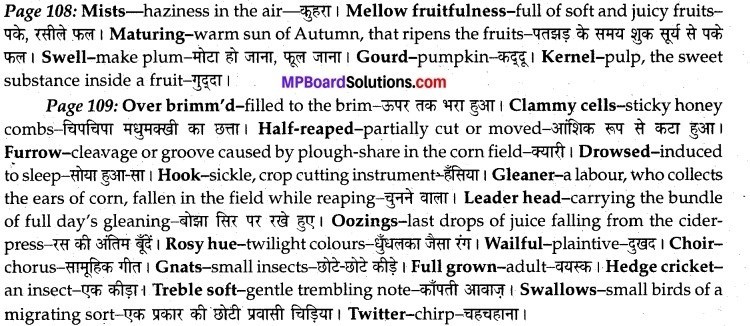
To Autumn Important Pronunciations

To Autumn Stanzas for Comprehension
Read the following stanzas carefully and answer the questions that follow:
1. Season,of mists and mellow fruitfulness,
i Close bosom-friend of the maturing sun;
Conspiring with him how to load and bless .
With fruit the vines that round the thatch-eaves run;
To bend with apples the moss’d cottage trees. (Page 108) (M.P. Board 2009)
Questions:
(i) Who does the first line refer to?
(ii) …………. is the bosom friend of the season.
(iii) Find a word which means same as ‘becoming perfect’.
(iv) How does it plan to fill the fruits?
Answers:
(i) The autumn season is referred in the first line.
(ii) The Sun.
(iii) Maturing means same as ‘becoming perfect 1.
(iv) It plans to fill all the fruits with ripeness to their core.
2. Then in a wailful choir the small gnats mourn
Among the river-sallows, home aloft
Or sinking as the light wind lives or dies;
And full-grown lambs loud bleat from hilly bourn;
Hedge-crickets sing; and now with treble soft
The red-breast whistles from a garden-croft;
And gathering swallows twitter in the skies. (Page 109)
Questions:
(i) What sound of the small gnats is referred to in the first line?
(ii) ……. bleat from hilly bourn.
(iii) Find a word from the lines with similar meaning to ‘shrill voice’.
(iv) What does the red-breast do?
Answers:
(i) The small gnat in the wailful choir mourn and this sound is referred in the first line.
(ii) The full grown, lambs.
(iii) Whistles is similar in meaning to ‘shrill voice’.
(iv) The red breast whistles from a garden croft.
We believe the information shared regarding MP Board Solutions for 12th English Chapter 15 To Autumn Questions and Answers as far as our knowledge is concerned is true and reliable. In case of any queries or suggestions do leave us your feedback and our team will guide you at the soonest possibility. Bookmark our site to avail latest updates on several state board Solutions at your fingertips.
